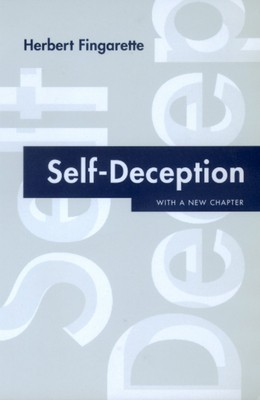
- We will send in 10–14 business days.
- Author: Herbert Fingarette
- Publisher: University of California Press
- ISBN-10: 0520220528
- ISBN-13: 9780520220522
- Format: 14 x 21 x 1.3 cm, softcover
- Language: English
- SAVE -10% with code: EXTRA
Reviews
Description
With a new chapterThis new edition of Herbert Fingarette's classic study in philosophical psychology now includes a provocative recent essay on the topic by the author. A seminal work, the book has deeply influenced the fields of philosophy, ethics, psychology, and cognitive science, and it remains an important focal point for the large body of literature on self-deception that has appeared since its publication.
How can one deceive oneself if the very idea of deception implies that the deceiver knows the truth? The resolution of this paradox leads Fingarette to fundamental insights into the mind at work. He questions our basic ideas of self and the unconscious, personal responsibility and our ethical categories of guilt and innocence. Fingarette applies these ideas to the philosophies of Sartre and Kierkegaard, as well as to Freud's psychoanalytic theories and to contemporary research into neurosurgery. Included in this new edition, Fingarette's most recent essay, "Self-Deception Needs No Explaining (1998)," challenges the ideas in the extant literature.
EXTRA 10 % discount with code: EXTRA
The promotion ends in 20d.09:25:24
The discount code is valid when purchasing from 10 €. Discounts do not stack.
- Author: Herbert Fingarette
- Publisher: University of California Press
- ISBN-10: 0520220528
- ISBN-13: 9780520220522
- Format: 14 x 21 x 1.3 cm, softcover
- Language: English English
This new edition of Herbert Fingarette's classic study in philosophical psychology now includes a provocative recent essay on the topic by the author. A seminal work, the book has deeply influenced the fields of philosophy, ethics, psychology, and cognitive science, and it remains an important focal point for the large body of literature on self-deception that has appeared since its publication.
How can one deceive oneself if the very idea of deception implies that the deceiver knows the truth? The resolution of this paradox leads Fingarette to fundamental insights into the mind at work. He questions our basic ideas of self and the unconscious, personal responsibility and our ethical categories of guilt and innocence. Fingarette applies these ideas to the philosophies of Sartre and Kierkegaard, as well as to Freud's psychoanalytic theories and to contemporary research into neurosurgery. Included in this new edition, Fingarette's most recent essay, "Self-Deception Needs No Explaining (1998)," challenges the ideas in the extant literature.


Reviews